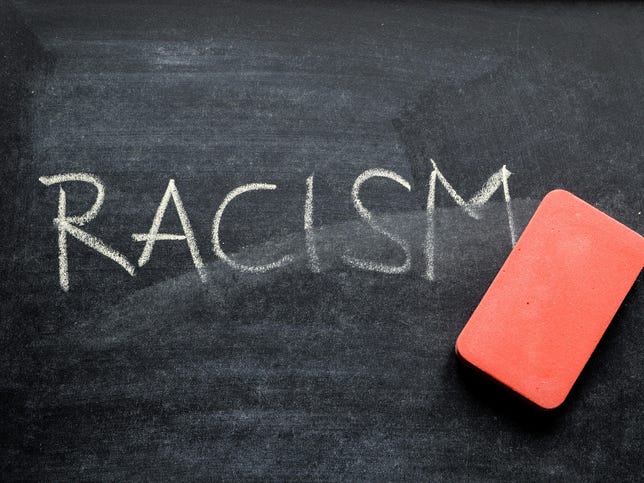 |
| Assemblywoman Marlene Caride (LD 36) selected by Governor-Elect Murphy to serve as Commissioner of the New Jersey Department of Banking and Insurance. |
The Anti-Poverty Network of New Jersey recently released “The Uncomfortable Truth: Racism, Injustice and Poverty,” a report that details the effects of structural racism that has long tainted many of our public institutions, and offers a wide range of recommendations on how to combat those effects. What the report makes clear is that the threads of structural racism extend to virtually all aspects of our lives, and untangling those threads will be a long and complex process. We asked the executive director of the Anti-Poverty Network, Renee Koubiadis, to explain more about the findings in the report and her organization’s goals with its release.
The Uncomfortable Truth report focuses on what is referred to as “structural racism.” What does that mean, exactly?

Renee Koubiadis
File photo
Structural racism refers to disparate access to opportunity that is imbedded in the social structures. It is not a direct expression of overt discrimination or prejudice; but it is the residue of the more direct, open racist policies of the past.
What’s to blame for this type of pervasive racism that affects so many of our institutions? Are we talking about actively racist policies, or a kind of underlying racist instinct that impacts our lives in ways difficult to see and identify?
Structural racism is the result of historical conscious and unintentional policies, decisions and programs that have become deeply embedded in today’s culture and institutions. It operates as a perpetuating force and serves as a resistance to change in the historic distribution of wealth. Structural racism can be seen in the results it produces with deep inequities for people of color.
We tend to equate racism with offensive stereotyping and abusive treatment. But is it fair to say that many of us — or most of us — are affected by a more benign racism that maybe causes us to, for example, accept certain stereotypes without condemning them? Perhaps that kind of racism isn’t as harmless as we might like to think?
Systemic racism can operate whether or not the individuals involved hold explicit or subliminal racist attitudes. In its most common form, it is simply the perpetuation of a “status quo” that was shaped by the virulent, overt, intentional racism of the past. It can operate through apparently race-blind policies and purportedly merit-based systems of consequence and reward. It can be worsened by personal prejudice, certainly, but it does not require conscious prejudice. It requires only complacency with a system that produces racist results, as demonstrated by racial and ethnic disparities that have economic and social consequences. As recognized by Dr. Martin Luther King Jr. in his leadership to address structural as well as explicit racism, “He who passively accepts evil is as much involved in it as he who helps to perpetuate it. He who accepts evil without protesting against it is really cooperating with it.”
So if we’re focusing on a broad cultural racism as opposed to individual biases, how does that affect people of color in practice? Are we talking about impacts in every facet of their lives, or do they tend to manifest themselves in specific areas?
The report covers in detail the way that structural racism impacts people of color in housing, access to economic opportunity, the criminal justice system, legal and civil protections, health care, and access to adequate nutrition. With each chapter on these topics, there are a number of policy recommendations for how our state can move forward to ending structural racism.
Let’s zero in one area to highlight. Structural racism has a significant impact on economic opportunities and success and is a driving force behind poverty. What statistics out there best quantify that?
The recent United Way of Northern New Jersey ALICE (Asset-Limited, Income-Constrained, Employed) report shows that 14 percent of people of color are below the Federal Poverty Level (FPL) in New Jersey, while 33 percent are ALICE. It means that 47 percent of people of color in New Jersey have income insufficient to meet all of their basic necessities. This compares to 7 percent of white households who live below the FPL level and 24 percent who are ALICE. Further, a 2012 study found that African American women spent seven more months on Temporary Assistance to Needy Families (TANF) assistance than white women. However, they were no more likely to pass the five-year lifetime limit for TANF that was imposed in 1996. The same study found that when these women found employment, it was mostly low-wage. In addition, a new report from the Institute for Policy Studies showed that wealth of the median black household declined 75 percent between 1983 and 2013. The median wealth of Latino households declined 50 percent during the same time. It is estimated by the year 2024 whites will own 99 and 75 times the wealth of blacks and Latinos respectively. These income and wealth disparities are the result of job discrimination, discriminatory zoning policies that excluded African Americans from following the good jobs to the suburbs, and educational disadvantages generated by our “apartheid” school system.
Let’s talk a little about the many recommendations included in the report. They cover a lot of ground on how to combat structural racism, but can you summarize the overall goals? Do you hope in time to reduce racism in our society, or is the focus more on better adapting to the presence of that racism?
APN set about developing this report to call for a statewide committed, coordinated action to dismantle structural racism. Utilizing education, mobilization and advocacy, community members, government officials, religious institutions, organizations, businesses and legislators can work together to help eradicate the harsh outcomes of structural racism on people living in poverty in New Jersey. We intend to generate a public response that will lead to the implementation of policies and legislation reflective of the findings and recommendations in the report.

“The Uncomfortable Truth: Racism, Injustice and Poverty,” a report that details the effects of ...more
Getty Images/iStockphoto
Among the recommendations is the restoration of the Office of the Public Advocate. Why is that so important in this context?
A restored independent Office of the Public Advocate, having the power and resources to audit public agencies, would have as a priority mandate the charge to evaluate policies or programs that perpetuate racial and gender disparity in our state. The Public Advocate would be the voice of aggrieved, disadvantaged residents of our state, those affected by public policies and actions that are unjust, inequitable, discriminatory or contrary to the public good.
A major point of emphasis in the report is the need to prioritize the problem. Yet it feels like as a society we’re moving in the wrong direction on discrimination. Do you believe that’s truly the case, or is that perception unduly influenced by what we’re seeing in Washington?
As a nation we were built upon racism, with slave labor propelling us forward in our growth. Individual, overt racism is not something that we studied for this report. There is certainly national attention currently focusing on people who both espouse racially charged speech and those who seek peace and justice. The fact that structural racism exists is undeniable. That is why it is so important to begin a concerted effort to educate the public and examine the ways in which structural racism perpetuates poverty and keeps a large portion of our residents from being able to fully participate in our state’s economy. Moreover, including people of color with lived experience of poverty in the work ahead is critical to moving forward towards meaningful, lasting change.
How does New Jersey compare to other states in terms of its structural racism? Are there lessons to be learned from other locales that will help here?
New Jersey is the third most segregated state in the nation in terms of housing and education. People of color have consistently been denied access to opportunity in terms of where they live, access to jobs and education, and barriers in the form of a discriminatory criminal justice system. APN and the John Watson Institute of Public Policy at Thomas Edison State University released “The Cost of Poverty,” in May 2016, which outlines how we have pushed poverty into all of our urban areas big and small over the last few decades. These municipalities are left without a business and corporate tax base and other resources to deal with this great need. While people of color are disproportionately pushed into poverty across the nation, segregation from opportunity in New Jersey is what sets us apart.
Structural racism is by its nature embedded in our culture; some examples we don’t even recognize because we’ve never seen the alternative. Doesn’t that mean that any meaningful progress is destined to be slow at best?
The speed with which structural racism is addressed is directly related to express, unequivocal, aggressive recognition that it exists and is embodied in any given policy or practice. Once the public comes to understand and accept this judgment, failure to act is intentional racism. Remedial actions can be as swift as the rapid, nearly unanimous acceptance of same-sex marriage. We need to be prepared for the long haul, but open to the possibility of more expeditious responses when the opportunity arises. We have already received positive response from New Jersey’s leaders on some of the recommendations in the report. Indeed, recommendations like increasing the TANF benefit level and eliminating the family cap have been passed by our legislature with bipartisan support twice in the current legislative session, but were vetoed by our governor. So there are solutions we know that our leaders, advocates and residents agree upon that can be achieved more quickly.
If you were to prioritize the report’s own recommendations, where do you believe is the best place to start?
Two of the over-arching recommendations in the report: to reestablish the Office of the Public Advocate and strengthen the Division of Civil Rights would go a long way toward providing a voice and protections for people of color who face significant barriers to economic opportunity. These offices would be helpful to residents who are victims of wrongful evictions, car repossessions, and discrimination in employment and housing.
So look ahead for us — five years, 20 years, whatever time frame you think is appropriate. What do you believe would represent a successful outcome from The Uncomfortable Truth report?
Over the next 10 years, APN hopes that this report will spark meaningful discussion across the state about structural racism and the way it manifests in people’s lives. We believe that more research and data collection must be done to truly understand all of the issues. Further, the intent of the report is to build consensus among community members, government officials, religious institutions, organizations, businesses, legislators, and people with lived experience of poverty to not only change the conversation, but to enact a number of the policy solutions in the report so that structural racism would be eliminated in New Jersey. If nothing else, we would hope that in 10 years New Jersey has moved well down the list of most segregated states. That would speak to meaningful progress in a profound way.
About the contributor
Renee Koubiadis is executive director of the Anti-Poverty Network of New Jersey. She is a licensed social worker who serves as secretary/treasurer on the Board of the Affordable Homes Group Inc. in Burlington County and on the Board of Trustees for the New Jersey Coalition to End Homelessness (NJCEH). Previously, she was advocacy coordinator for the National Association of Social Workers – New Jersey chapter, and assistant state director for the Citizens’ Campaign.








